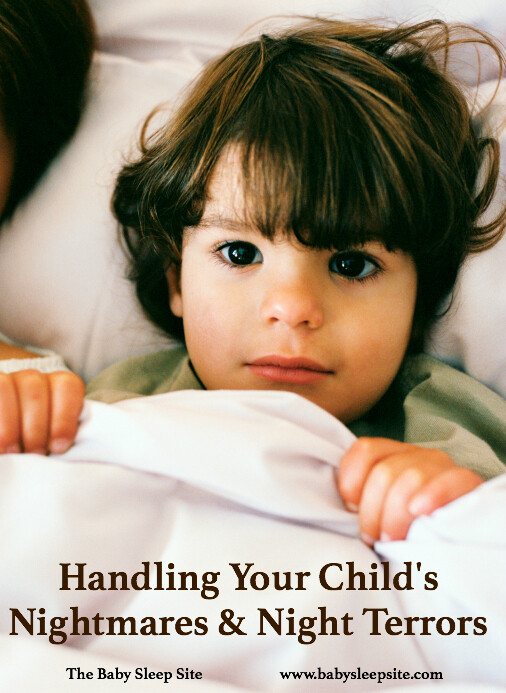Many pediatricians agree that sleep terrors typically happen to young people who are stressed overtired ill and who experience trauma. Night terrors are more common in young children from toddlers to grade-schoolers.
 Nightmares Vs Night Terrors Wee Bee Dreaming Pediatric Sleep Consulting
Nightmares Vs Night Terrors Wee Bee Dreaming Pediatric Sleep Consulting
In some children lack of sleep is the main reason for night terrors.

Toddlers and night terrors. A night terror takes place during non-REM sleep and involves feelings of fear screaming thrashing around and sweating while still asleep and wont be remembered the next day. A study of almost 2000 children found that 40 percent of children between ages 2 12 to 6 years old experienced night terrors. More information on night terrors can be found here.
The following behaviors and symptoms may be a sign that your baby is having a night terror. A nightmare on the other hand is simply a bad dream. How are night terrors different from nightmares.
Other things to know about kids with night terrors include that. Nightmares tend to happen in the second half of the night when your child is sleeping lightly and dreaming. Their eyes will be open but theyre not fully awake.
Lack of sleep can sometimes result in night terrors. Night terrors and sleepwalking both seem to run in. These things can help the child pile up all the problems and result in night terrors.
Night terrors usually take place earlier in the nighttypically about 2-3 hours after a child falls asleep. Night terrors usually happen in kids between 4 and 12 years old but have been reported in babies as young as 18 months. Screaming sweating thrashing and restlessness open glassy eyes a racing heartbeat rapid breathing.
Night terrors usually appear in children between the ages of 3 and 7 years and about 30 of children have had at least one. Night terrors are an inherited disorder in which a child tends to have dreams during deep sleep from which it is difficult to awaken. Night terrors happen during the first few hours of sleep when your child is sleeping very deeply.
Night terrors are less common than nightmares but they still affect about 1 in 20 children. Night terrors have been noted in kids who are. First off if your child is having sleep terrors be sure to.
These dreams can cause a child to shout thrash and get out of bed. Overtired ill or stressed. They are less common in this age group and.
Night terrors are also called sleep terrors or pavor nocturnus. Ensuring that your child sleeps properly is the best way to prevent night terrors. So as I mentioned above a night terror is a disruption in the sleep cycle usually between the fourth and fifth stages of sleep.
Night terrors usually happen in kids between. They seem to be a little more common among boys. 13 Tips to Stop Night Terrors in Children NOW 1.
Who Gets Night Terrors. Similar to sleepwalking and sleep talking night terrors are considered to be a disorder of arousal and are a partial. Night terrors are common in children aged between 3 and 8 years old.
Nightmares are more common than terrors but neither cause any psychological harm to your child. Nightmares often occur closer to the morning. Sleeping in a new environment or away from home.
Night terrors are relatively rare they happen in only 36 of kids while almost every child will have a nightmare occasionally. Having too much caffeine. Taking a new medicine.
See your pediatrician tonsils adenoids sleep apnea. Babies can have them too. Kids often grow out of them by about age 12.
Night terrors can also occur in a tired child or one who is stressed or suffering from a sickness. A child who experiences night terrors may scream shout and thrash around in extreme panic and may even jump out of bed. When the episode subsided he always reached for his water and literally chugged it.
Night terrors are relatively rare they happen in only 36 of kids while almost every child will have a nightmare occasionally. Not getting enough sleep. Night terrors can sometimes be disturbing to parents and caregivers even though they are harmless to the child.
